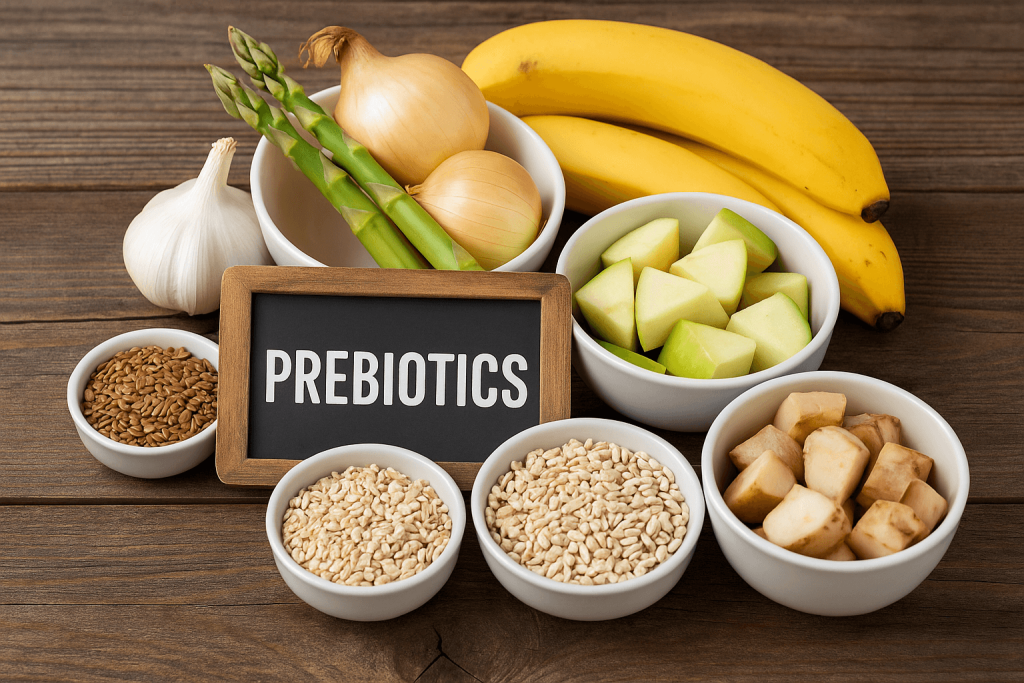The Forgotten Fiber: Why Prebiotics Deserve More Attention

Everyone talks about probiotics—but prebiotics are the unsung heroes of digestive health. Unlike probiotics, which introduce beneficial bacteria, prebiotics feed the good bacteria already living in your gut. Without prebiotics, even the best probiotic supplement can struggle to thrive.
Prebiotics are a type of fermentable fiber found in plant-based foods. They travel undigested to the colon, where they fuel gut flora, encourage microbial diversity, and support the production of beneficial short-chain fatty acids like butyrate. These acids play a crucial role in immune function, mood, and even weight regulation.
Best Natural Sources of Prebiotic Fiber:
- Garlic, onions, leeks, asparagus
- Bananas (especially slightly green)
- Oats and barley
- Chicory root and Jerusalem artichokes
- Apples and flaxseeds
Benefits of a Prebiotic-Rich Diet:
- Improved digestion and regularity
- Enhanced immune system support
- Reduced bloating by balancing gut bacteria
- Increased absorption of minerals like calcium and magnesium
To incorporate more prebiotics, focus on whole foods rather than fiber supplements alone. Prebiotics work best when consumed daily, in combination with a variety of vegetables, fruits, and whole grains. Too much, too fast may cause temporary bloating—start slow and build up.
A healthy gut isn’t built by bacteria alone. It needs the right fuel. And that fuel starts with forgotten, functional fiber.



